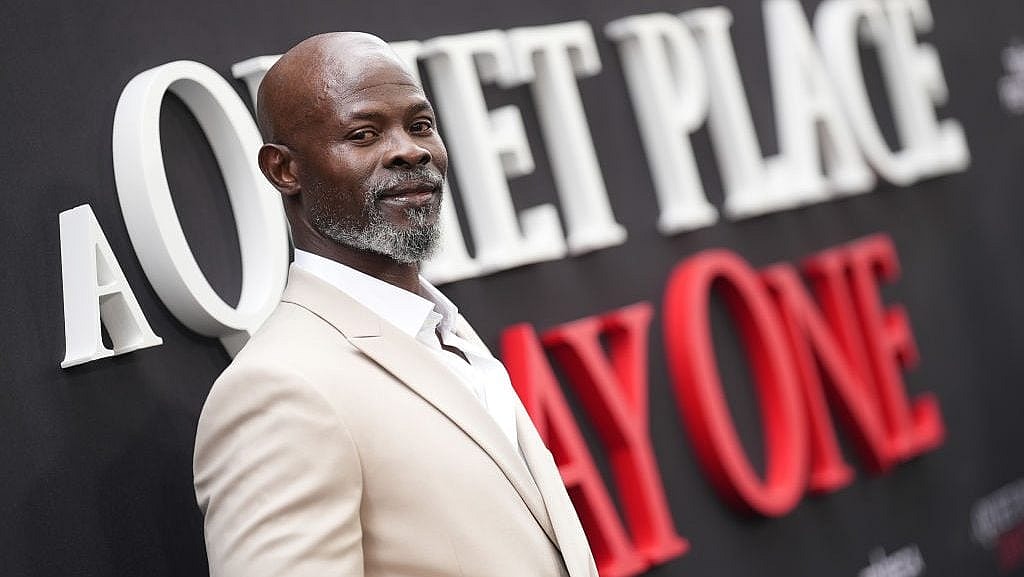Djimon Hounsou has had tremendous success in Hollywood since he first arrived in California from Benin in 1990 to pursue acting.
He is a two-time Oscar nominee (for “In America” in 2004 and “Blood Diamond” in 2007) and has starred in some of the industry’s biggest films, including “Gladiator,” “Shazam,” and the “A Quiet Place” franchise.
However, his journey has not been without struggle and he says it’s because of systemic racism.
After over 30 years in the business, speaking candidly about his career and the impact racism has had on it in a recent interview with CNN, the 60-year-old actor said, “I came here for a dream, and I’m realizing that systemic racism was in all things you see.”
Hounsou, who first made a splash in Steven Spielberg’s famous slave epic Amistad, said he has experienced typecasting and under-compensation.
“With two Oscar nominations, I’m still struggling financially to make a living,” he said. “That’s a sign for you that systemic racism is not something you can deal with lightly, it’s so deep inserted into so many things that we do across the board.”
Systemic racism wasn’t just evident in his experiences working in Hollywood. He said he saw it in the Black experience, particularly when it came to a “profound disconnect” he said he felt from Black Americans.
“I certainly felt a tremendous void, and that void is due to the lack of knowledge of who we are: our backstory, meaning our history, ancestral roots, and culture,” he explained.
While working on “Amistad,” Hounsou said his research for the role led to a deeper understanding of the ways in which the Atlantic Slave Trade still has influences to this very day. Rather than let all of this push him away, he has instead worked to pull Black Americans in closer through an event series he launched in 2019 called Africa Reconnect, held in Richmond, Virginia, a former hub for the slave trade in this country.
In September, the actor hosted the third annual Run Richmond 16-19 race, where roughly 2,000 attendees joined him in running either a 16.9 or a 6.19 (as in 1619, the year the first slave ship arrived in Virginia). The race began with a special event called “A Time to Heal” where guests were led in exercises like guided meditation and breathwork in Shockoe Bottom area, the location of America’s second-largest slave market, per CNN.
He told the outlet he understood that hosting an event such as this in such a location could trigger a host of emotions and pain for many people.
“But by opening those wounds and acknowledging what once took place here, you are engaging a form of healing,” he said. “That’s what I’m trying to achieve, healing of the intergenerational trauma of our [Black] people.”


